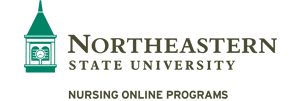An American Association of Colleges of Nursing survey of 892 nursing schools found more than 1,600 nursing faculty vacancies and predicts an ongoing shortage of registered nurses (RN) will grow unless those educator positions are filled and more than 100 others are created.
Although enrollment in nursing schools “surged” to nearly a quarter-million in 2020, the AACN reported in a separate survey, that nearly 81,000 qualified applicants were denied admission to nursing programs due to the shortage. Moreover, almost 12,000 nurses seeking graduate degrees, including candidates for RN to Master of Science in Nursing (MSN) in Nursing Education programs, were turned away.
The association described this as “a major bottleneck” for nursing education and warned that it “further limits the students a program can accept.”
What Is Causing the Nursing Shortage?
The COVID-19 pandemic has created a sizable exodus of nurses, amounting to a healthcare crisis. Research published by the National Library of Medicine (NLM) found demand for new RNs is higher than that for any other profession. Issues that prevent meeting that need, however, include the following:
Nurses are nearing the end of their careers: More than 1 million registered nurses will reach retirement age by 2030. That number includes nurse educators, which means nursing programs will reject more nursing-school applications and compound the entire nursing shortage problem.
Nurses are burning out: After years of high turnover, the trend of voluntary attrition appears to be leveling. Still, the rate of nurses leaving the profession averages between 8% and 37% nationwide, depending on location.
Nurses are choosing family over career: Nursing is a female-majority profession with careers starting in prime family years. Many female nurses who take on childcare responsibilities will likely cut back their hours, and others will leave the profession altogether and not come back.
“The nursing profession continues to face shortages due to a lack of potential educators, high turnover, and inequitable workforce distribution,” the NLM research notes.
What Are the Advantages of Becoming a Nursing Educator?
Adding to the number of nurse educators will enable schools to admit more qualified applicants to associate and baccalaureate programs, begin closing the nursing gap and ensure healthcare quality.
And while pressure does come with teaching positions, MAS Medical Staffing rates nurse educators among its top five least stressful healthcare jobs. A nurse educator’s responsibilities include:
- creating and implementing academic and continuing education programs
- advising students and providing the leadership needed to implement evidence-based practice
- assuring quality educational experiences and documenting outcomes
- engaging in scholarly work and participating in professional associations
- writing grant proposals
“While any educator will tell you there is stress associated with the job, the reward certainly outweighs it,” according to the healthcare staffing agency.
How Do RNs Prepare for Careers in Nurse Education?
An RN to MSN in nursing education degree opens doors to the personal and professional satisfaction of preparing the next generation of nurses.
The ACEN-accredited RN to MSN Nursing Education online program offered online by Northeastern State University equips graduates with expertise and insights to make their mark in the classroom through a course of study that includes:
- Developing curricula for a variety of teaching situations and levels of education
- Creating assessment and evaluation strategies through exploration of theories, principles and practices in metrics for learning
- Facilitating learning for healthcare professionals by focusing on ways to create successful educational environments using technology, informatics, skills labs and other methods
The global need for nurses starts with those who educate up and coming professionals. A degree in nursing education is an ideal path to making an impact on widespread demand.
Learn more about Northeastern State University’s online RN to MSN in Nursing Education program.


